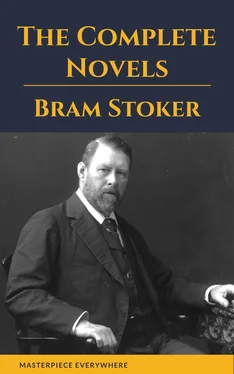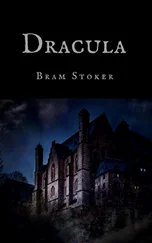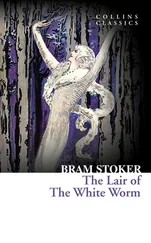Bram Stoker - Bram Stoker - The Complete Novels
Здесь есть возможность читать онлайн «Bram Stoker - Bram Stoker - The Complete Novels» — ознакомительный отрывок электронной книги совершенно бесплатно, а после прочтения отрывка купить полную версию. В некоторых случаях можно слушать аудио, скачать через торрент в формате fb2 и присутствует краткое содержание. Жанр: unrecognised, на английском языке. Описание произведения, (предисловие) а так же отзывы посетителей доступны на портале библиотеки ЛибКат.
- Название:Bram Stoker: The Complete Novels
- Автор:
- Жанр:
- Год:неизвестен
- ISBN:нет данных
- Рейтинг книги:3 / 5. Голосов: 1
-
Избранное:Добавить в избранное
- Отзывы:
-
Ваша оценка:
- 60
- 1
- 2
- 3
- 4
- 5
Bram Stoker: The Complete Novels: краткое содержание, описание и аннотация
Предлагаем к чтению аннотацию, описание, краткое содержание или предисловие (зависит от того, что написал сам автор книги «Bram Stoker: The Complete Novels»). Если вы не нашли необходимую информацию о книге — напишите в комментариях, мы постараемся отыскать её.
The Complete Novels :
The Primrose Path
The Snake's Pass
The Watter's Mou'
The Shoulder of Shasta
Dracula
Miss Betty
The Mystery of the Sea
The Jewel of Seven Stars
The Man
Lady Athlyne
The Lady of the Shroud
The Lair of the White Worm
Bram Stoker: The Complete Novels — читать онлайн ознакомительный отрывок
Ниже представлен текст книги, разбитый по страницам. Система сохранения места последней прочитанной страницы, позволяет с удобством читать онлайн бесплатно книгу «Bram Stoker: The Complete Novels», без необходимости каждый раз заново искать на чём Вы остановились. Поставьте закладку, и сможете в любой момент перейти на страницу, на которой закончили чтение.
Интервал:
Закладка:
And here her memory, spurred on thereto by her wishes, began to play her tricks. She construed in the secrecy of her own soul the indifference of their parting into a wrong to him; and remorse began to assail her. She seemed to remember a certain sadness in his beautiful eyes — for by this time his eyes had become to her memory beautiful — and to have all the wealth of varied and passionate expression which is the possession of a young woman’s fancy. As one by one the thousand little incidents of Dick’s illness and convalescence came back to her mind they came accompanied by all sorts of added charms on his part and small defects on her own, which fed the fires of her remorse; so that it was not long until as she sat thinking and recollecting her eyes would fill with unbidden tears.
This process of Esse’s mental unhinging was aided by the care which her mother took to avoid the subject. She had seen that Esse had resumed her old life where she had left it, and was rejoiced that she did so with a physical improvement which she had hardly dared at the beginning to hope for. Mrs. Elstree prided herself on her worldly wisdom, and took special satisfaction to herself that by her patient forbearance at Shasta, she was now enabled to let well alone, without any fear of her attitude, positive or negative, being misunderstood by her daughter. Had she been a more experienced woman, she would not have avoided the subject of Dick, but from her superior position of manifested tolerance could have minimised the effect of his picturesque romance by judicious belittlement. As it was, her silence seemed to Esse a want of appreciation on her part of Dick’s heroic qualities; and so it left her daughter to the dangers of her own imagination, with its active and reactive power on memory, and to the less wise sympathies of her girl companions. In the world of Esse’s imaginings as to how Dick bore her absence, she began to invest him with a despairing loneliness which became in time but the co-ordinate feeling of her own heart.
Naturally her brooding on this theme, and the secrecy which as naturally became imposed upon her when once she had come to understand its existence, told in time upon her health. She began to grow pale and listless; with poignant fear her mother realised that she was lapsing into her old condition of ill-health — with the added drawback that she had in the meantime passed from girlhood to womanhood, and that her secret tears whose traces she could not always conceal, showed that a new and dangerous emotional side of her nature had been developed. Mrs. Elstree thought and thought the matter over patiently, prayerfully, doubtingly, and with a vague, deadly fear which at times became an anguish. She could not conceal from herself that there might be some deep-lying cause in the shape of an unrequited affection, and, naturally she thought that Grizzly Dick might be the object of it. Well, she had known from the observation of her own life and that of the companions of her youth, the truth that was told in Viola’s true-false tale:
She never told her love
But let concealment, like a worm i’ the bud,
Feed on her damask cheek.
She took counsel with Miss Gimp on the subject, and even asked her opinion as to the possibility of Dick being the object — if indeed, there was one. Under ordinary circumstances the perspicacity of the two elder women who loved her, might have found a way to the knowledge of Esse’s secret, and have also found a way for her to its settlement; but Miss Gimp’s own feeling for Dick became at once a bar to the knowledge. She had in the discussion her own secret to keep, and this involved a putting aside of the subject altogether. She had also her own end to serve, for she still regarded Dick as a victim to her charms, and a possible object of her settlement in life. In slang phrase she had “her own axe to grind” in the matter, and looked upon the possibility of Esse’s falling in love with Dick as a direct infringement of her own rights. She was only human — and woman — and the stalwartness of her opinion on the subject of Dick set Mrs. Elstree’s doubts on the subject almost at rest. She determined however to be assured, and took an early opportunity of touching on the subject with Esse herself. She was, however, delicately careful only to touch on the subject in such a manner as not to arouse Esse’s suspicions, in case the idea should have no basis in fact, and not to put such an idea in her head, in case it was not fixed there already. And as Esse wished to keep her secret from her mother, who she felt by this time assured would not understand it, it was no wonder that the conversation had the result of clearing all doubts from Mrs. Elstree’s mind and leaving her under the impression that she had Esse’s direct assurance that Dick had no place — and no possible place — in her affections.
The schoolmen doubtless believed when they came to formulate the rules of logic that the suppressio veri and the suggestio falsi were emanations from the mature intellect of man. Widely they erred! for Eve, the first of women understood them to the full, and it was in that stage of her existence which coincided with a later woman’s girlhood that — before she had known Adam and begun to understand the more simple directness of his man’s thought and ways — she most fully understood their advantages. Since her time no young woman has ever failed to conceal, by their use, her thoughts on the subject of her affections — when she wished to do so — more efficaciously than a man can conceal his by the direct method of a denial accompanied by blows.
Now and again Esse wore the necklace of bears’ claws, for she felt that to omit doing so occasionally would arouse her mother’s suspicion; and it was sweet to be able to have so close to her something which was in every way a manifest link between her and Dick. But she continued to grow thinner and paler; and the heart of her mother grew sadder as the time went on.
There came to visit their home in California Street an old friend who occupied a sort of brotherly position towards both mother and daughter. He had been an intimate friend of Esse’s father, and on the marriage of the latter had become equally a friend of his young wife. This relationship was not changed even by his own marriage or by Mr. Elstree’s death, for his wife became, as it were, a partner in the friendly concern, and when Mr. Elstree died he left a letter asking him to look after his wife and daughter, and aid them by his help and counsel. He did not burden him with the trusteeship or care of their affairs, for the fortune which he had left to them was sufficiently great to be a care in itself. Peter Blyth was now approaching middle age, and seemed to have gathered to himself in his progress through life all its pleasant possibilities and advantages. He followed, or had followed at some time or other, quite a number of avocations, so that his knowledge was as varied as his taste and sympathy; and as in every phase of his career he had some distinct points of contact with the needs and doings of men he had arrived at a large and tolerant knowledge of human nature. Esse, from her earliest childhood, had known him as a sort of big brother, and had never called him anything but Peter. From him had always come to her something that was pleasant or helpful, from the days that she used to wheedle him into producing the toy or sweet that she knew was waiting for her in the deep recess of some pocket. When she was in any trouble, either of her own or others’ doing, she relied on him confidently to see her through it; and even when she had suffered any childish pain, to hold Peter’s hand was a distinct ease and help to her. Naturally between the two had grown up a rare confidence, and up to now in her life Esse had never had a secret which Peter Blyth had not shared. The years that had passed had not aged him in any way, except in the limiting of his physical buoyancy, and in strewing a few white hairs through the thickness of his curly brown beard. This beard of Peter Blyth’s was the feature on which a physiognomist would have lingered longest in the setting forth of his character, for it gave a distinctive quality to other features which, though altogether good, were in no wise remarkable. From his beard, and what was all around it, could be deduced the fact that he belonged to the antique rather than the modern world, and distinctly to the pagan school of life. It was not that he was sceptical, for he was not; nor that he was assailed with unconquered doubts, for he had his moods of acquiescence in the fitness of things, and the opposite, as have all men in whose veins the red blood of life flows freely. But there was about him a large-hearted, easy tolerance which made any limited phase of thought a thing rather despicable to him than abhorrent. For all “isms” he had only contempt, from Calvin to Ibsen; all who held with the ungenerous side of beliefs could not move him from intellectual placidity. His throat had the broad smooth lines which we see in the old busts of Jupiter, and his mouth and chin, which, taken separately, showed the two poles of resolution and of power of enjoyment, pronounced, when taken together, for a conscious joie de vivre, which was most certainly not a characteristic of his time.
Читать дальшеИнтервал:
Закладка:
Похожие книги на «Bram Stoker: The Complete Novels»
Представляем Вашему вниманию похожие книги на «Bram Stoker: The Complete Novels» списком для выбора. Мы отобрали схожую по названию и смыслу литературу в надежде предоставить читателям больше вариантов отыскать новые, интересные, ещё непрочитанные произведения.
Обсуждение, отзывы о книге «Bram Stoker: The Complete Novels» и просто собственные мнения читателей. Оставьте ваши комментарии, напишите, что Вы думаете о произведении, его смысле или главных героях. Укажите что конкретно понравилось, а что нет, и почему Вы так считаете.












